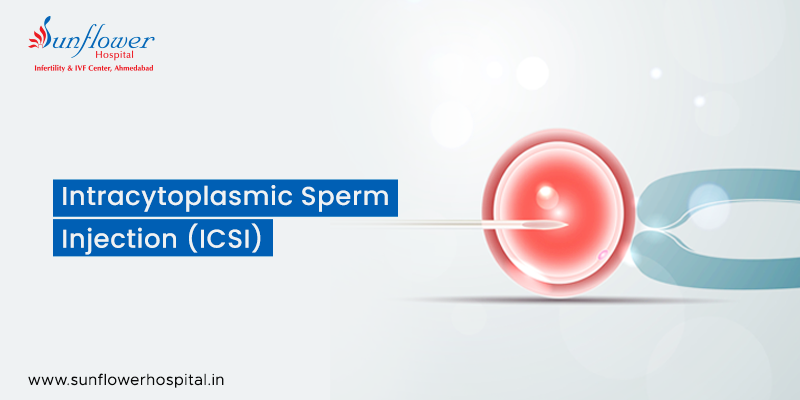ICSI, an acronym for Intracytoplasmic Sperm Injection, is another infertility treatment in the field of ART (Assisted Reproductive Technology) that our best gynaecologist in India performs. It acts as a hope for several couples struggling to conceive due to infertility issues. Whether you are seeking knowledge or looking forward to choosing ICSI as a treatment, this blog aims to develop an overall understanding of the procedure. So, without further due, let’s begin.
What is ICSI?
Intracytoplasmic Sperm Injection is an infertility treatment undertaken in the laboratory wherein our professionals retrieve eggs and inject sperm into the egg. It results in fertilization, which in turn forms an embryo. ICSI is generally advised in case of male infertility issues.
Even though ICSI is one form of IVF, the primary difference between the two is egg fertilization. In ICSI, a sperm is injected into the egg, whereas in IVF, the egg and multiple sperm are left to fertilize in a petri dish. Check here to know the difference between IVF and ICSI.
Who Needs to Undergo Intracytoplasmic Sperm Injection?
Medical professionals generally recommend ICSI for couples unable to conceive because of male infertility. However, some indications for the procedure are.
- Decreased sperm count
- Unable to ejaculate, i.e., Anejaculation
- Reduced sperm quality
- Blocks in the male reproductive system
- Retrograde ejaculation, wherein the sperm flows back to the bladder
- Unexplained failure of the IVF process
- Couples suffering from HIV, HCV, or HBSAG
- To conduct embryo biopsy for PGD/PGS
- Couples intending to use frozen sperm or eggs
What Happens Before the ICSI Procedure?
Before the procedure, the professional will collect the sperm and eggs. The following steps are undertaken for egg retrieval;
Ovarian Stimulation
This process is also known as ovarian induction, wherein women are given medications for eight to fourteen days to increase the number of eggs produced during ovulation. Finally, HCG injection or lupron will help in maturing the eggs.
Egg Retrieval
The medical professional will use transvaginal ultrasound technology to assist the needle inserted through the vaginal wall into the ovaries. It is generally performed with mild anesthesia, resulting in no to minimal pain. Lastly, eggs are collected with the help of suction equipment attached to the needle.
What Happens During the ICSI Procedure?
When you undergo the procedure at the best gynecologist hospital in India, professionals will;
- Use a tiny tube of glass with a suction bulb, also known as a pipette, to clasp the mature eggs
- Use a thin, hollow, and sharp needle to immobilize and choose single sperm
- Insert a needle to reach the cytoplasm via egg
- Inject the sperm in the cytoplasm
- Take out the needle carefully and check the eggs for fertilization in intervals
What Happens After the ICSI Procedure?
After performing the procedure, the professional watches out for signs of fertilization. In five to six days, the fertilized eggs divide into cells, ultimately leading to blastocyst. The professional will then analyze the cell mass and size of the blastocyst to determine when pregnancy is most likely to occur.
The medical professional will discuss the timing of the embryo transfer and will then use ultrasound technology to place the embryo in the uterus. At last, they will advise taking a pregnancy test after a while.
Wrapping Up
Intracytoplasmic Sperm Injection (ICSI) is an infertility treatment that primarily caters to factors affecting male fertility and improves the chances of conceiving. However, you should consult a gynecologist to determine which infertility treatment suits your case.


Leave a Comment